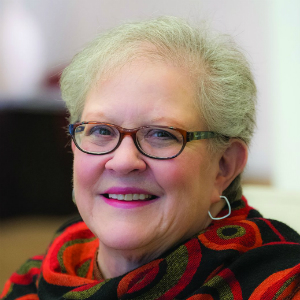The following questions were asked of organizations who are FairHotel Partners. I am grateful to John F. Stephens and to the American Studies Association for their response.
Stephens has served as Executive Director with the American Studies Association, from 1983 to present [June 2018 at the time of publication]. He is the current Chair of INMEX.
The American Studies Association, the oldest and largest association devoted to American studies, was chartered in 1951 by the Library of Congress.
The association promotes the development and dissemination of interdisciplinary research on U.S. culture and history in a global context. Its purpose is to support scholars and scholarship committed to original research, critical thinking and public dialogue.
The ASA website notes that “We are researchers, teachers, students, writers, curators, community organizers, and activists from around the world committed to the study and teaching of U.S. history and culture from multiple perspectives.”
Disclaimer: If in editing, we have misquoted Mr. Stephens, our apologies
In so publishing this interview or the accompanying blog, we are not endorsing either INMEX or the FairHotel Partners program.
We provide this information as an enhancement for those who want to consider their work with hospitality unions and workers who are part of those unions.
Q1. Tell us about your experiences working with organized labor as a customer and why it is important for those in our industry to support organized labor.
A1: The ASA has a long history of values-based meeting planning.
In November 2002, the ASA unanimously adopted the following resolution, originally adopted in 1998, linking local support for affirmative action with the ASA’s selection of future meeting sites. In selecting future convention sites, we seek to reward cities and states that publicly support affirmative action by privileging them as convention sites.
We urge our Program Committee each year to work closely with local organizers in order to highlight issues of discrimination and fair practice specific to that site.
We also encourage other professional associations to join this effort to fight discrimination and re-segregation and established guidelines for labor policies that promote equal opportunity and social justice.
ASA is proud to be a founding member of INMEX, a nonprofit meeting planning organization started by UNITE HERE to ensure that groups such as ASA hold their meetings and conferences at hotels and conference centers that treat their workers with dignity and respect. With the assistance of INMEX, tens of millions of dollars’ worth of meeting and convention business has been diverted to corporations that practice high-road employment practices.
[Joan’s disclaimer: Prior to the founding of INMEX in 2006, I conducted training, for which I was paid, for planners interested in UNITE HERE’s mission. I discontinued training with the founding of INMEX because of my discomfort with commissionable rates.]
Our organization expects a very high level of professional meeting planning services for our annual convention. But for our members, it is also important that we're partnering with responsible corporate actors. In the end, we decided to go with INMEX—not only because they offer high quality event planning solutions, but also because they assure that our dollars are going to good corporations.
Q2. In what ways can the negative perception of organized labor be made positive in the meetings industry?
A2: While the ASA remains vigorously and unanimously committed to promoting labor rights and affirmative action through its conference site selection, we took seriously the increasing concern that boycotts may not be the most effective tactic for manifesting this support and might have detrimental effects on other measures by which the ASA attempts to foster diversity in the profession.
The Students’ Committee, for instance, voiced concerns over graduate-student access to the annual convention; a wholesale boycott on two western states may have negative effects on the ability of students from those states to travel to the convention site. It was pointed out that just as federal and state laws on affirmative action can depart significantly from each other, so too can municipalities adopt more progressive policies to counteract those of the state at large.
With these concerns in mind, the ASA resolved to continue the public support of affirmative action and fair practice toward which boycotts were originally directed through a change in strategy that rewards such practices at the local rather than the state level.
By emphasizing the value of organized labor to the meetings industry to include streamlined negotiations; greater employee satisfaction, productivity and quality; retention and continuity (less turnover); and when ownership, management and labor are on the same page, it’s more efficient and easier to make adjustments.
Also, union organizers should recognize the precarity of meeting planner employment.
They may be contract employees, those working on commissions, or those at the bottom of the food chain in a trade or academic association, yet expected to operate on a transaction basis to get the best deals.
American Studies Association Actions
- ASA-UNITE HERE Joint Statement (2010).
- ASA Joins INMEX (2006).
- Policy on Union Preference for ASA Conventions (2004).
- Annual Meeting Site Selection (2002).
- NAACP Economic Reciprocity Initiative (1998).
Related Reading From the June 2018 Edition of Friday With Joan
- Why Unions, Planners and Suppliers Need to Get Along
- Planners Share Pros and Cons of Working With Unions
Click here to view additional content in the 06.01.18 Friday With Joan newsletter.







